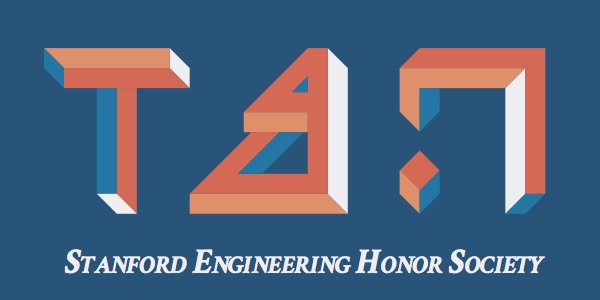By Lauren Feitzinger, Senior, Management Science and Engineering
Lauren is a senior in MS&E, focusing on the Operations and Analytics tract. In her free time, she loves spending time with her three younger siblings, watercolor painting, and anything involving dogs.

Why did you choose to be an engineer?
To be quite honest – my mom. She was a Stanford engineering student also, and since I can remember I have always looked up to her as a woman in STEM. She has always been passionate about problem solving, and I think seeing that from a young age really shaped me to want to follow in her footsteps.
Like so many freshmen in STEM, I came to Stanford torn over that quintessential question: to be pre-med or not to be pre-med? Looking back, I don’t think I ever wholeheartedly wanted to be a doctor, but I had watched my share of Grey’s Anatomy, and was fundamentally drawn to the premise of directly improving people’s lives through my career. As an 18-year-old headed to college, going into medicine was one of the only ways I knew of ensuring both a stable career path and social impact.
By the end of freshman year, I realized that medicine definitely wasn’t for me (here’s to you, O-Chem), but at the same time I concluded that healthcare definitely was for me. That spring break, I participated in an Alternative Spring Break through the Haas Center called “Health and the Harvest,” a week in which a group of 13 students and myself visited nonprofits, hospitals, and legal organizations battling to improve migrant farmworkers’ access to healthcare. While I continued to be in awe of how vastly doctors impacted individuals’ lives, I found that what truly excited me was not so much clinical care itself, but the problems of cost and efficiency surrounding it. These problems, as many of us know, are so inadequately addressed in our nation’s healthcare system. As I began to explore this interest more in depth, my eyes were opened to the fact that US healthcare administration is decades behind other industries when it comes to efficiently utilizing data, standardizing procedures, and prioritizing consumer experience. All of these systematic issues make healthcare operations an incredibly challenging field, but also one full of opportunity for meaningful change.
While it wasn’t easy to let go of that initial pre-med dream, Management Science and Engineering turned out to be the perfect major for me, because it primes students for problem solving across various disciplines. MS&E has pushed me in engineering skills across the board – from chemistry (but just one year;)) to data science to product management. More than that, MS&E has evolved that initial spark of interest in healthcare systems engineering into a flame. There are two classes that particularly shaped the development of my interest – MS&E 263 and its follow-up, MS&E 463, both project-based classes focused on healthcare operations management.
MS&E 463 in particular highlights the meaningful intersection between healthcare and engineering. This quarter in 463, a team of 4 students and myself have been working with the Anesthesiology Division at Lucile Packard Children’s Hospital to reduce variation in perioperative opioid administration. We’ve been using R and Tableau to build out a dashboard that anesthesiologists will be able to use to periodically review their practices. A tool to track trends in distribution of medication – sounds like something that should already exist at a Stanford hospital right? It turns out that isn’t the case, a disparity that provides just one example of why it is so exciting to be a healthcare systems engineer.
Before I came to Stanford I didn’t understand that it was possible to improve patient care without performing a clinical role. As I look back on my four years here, I am so grateful for the opportunities inside and out of the classroom that have allowed me to find healthcare systems engineering. While I’m not sure about the exact path my career will take, I’m confident that healthcare will play a fundamental role in it. I suppose that is one of the most important parts of college, discovering that unique intersection of what you care about, what you’re good at, and what you enjoy doing. I’m sure I will always be on that journey of discovery, but I’m so grateful to Stanford for giving me a great start.
